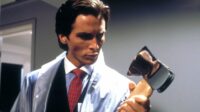The Martian arrived in 2015, just before the beginning of THAT election year, and when I look back at it, it feels distant. We were living in a time when humans could actually coexist. Politics didn’t seep into every crevice of our lives, and America’s commander-in-chief didn’t say that Nazis were “very fine people.” Things were not chaotic at every turn. That’s not an attempt to sugarcoat the multiple mass shootings, systemic racism, natural disasters, and a Syrian refugee crisis that showed just how fragile life can be. Things were not perfect. Nothing ever is. And still, The Martian was a movie that encapsulates just how harmonious humanity could be. Or at least it showed us something we should strive for. Not harmonious in a “Hakuna Matata” kind of way, but instead working together for the greater good of mankind, no matter what you look like, where you came from, or what party you affiliated with.
What I am going to talk about in this article is the unexpectedness of Ridley Scott making The Martian, and the place it holds in his directing career. The path that Scott took leading to The Martian is a culmination of his excellence. In 2013, he made the extremely nihilistic drug drama, The Counselor, and followed it up with Exodus: Gods and Kings, a portrayal of a God that could care less who died in the path of nature’s wrath. Both were box-office disappointments, but those two leading up to The Martian were a gradual incline for Scott to show more kindness in his films.
It deals in the negative, but the entire plot of The Martian is about a man having death knock at his door at every minute. Yet, it is that fear, the impending doom, insurmountable odds, and human ingenuity that make the large scale accomplishment of The Martian even more important. It’s a success story. It was a movie that Ridley needed to be a hit. In the process, he directed a film that was extremely hard to adapt and reminded us of his greatness, while showing that humans need one another, they need science, and we can get back to living in peace together no matter the odds.

The odds are insurmountable alone—it’s better to work as a team.
I’ve watched The Martian too many times to count. It was in my Top 10 of 2015, but I am also unapologetically biased towards all things Ridley Scott. He’s my favorite director. If you follow my Twitter account (@LeosAMovieGuy), you already know this. I find his films often to be flawless and beautifully flawed. And yet, upon re-watching The Martian to work on this piece, there was something I noticed that I often took for granted: The Martian is not about one man’s survival alone on a planet. It’s quite the opposite. It’s about how much humanity needs one another to survive.
The opening sequence of The Martian guides us onto the red planet of mars, with the entire crew of the Aries III focused on the task, working separately but together. Mark Watney (Matt Damon) studies the changing particles of dirt on the planet’s surface, Ramirez (Michael Pena) keeps tabs on the ship that will return the crew to earth, commander Lewis (Jessica Chastain) keeps the crew focused on their jobs. Each person has a role. This is not an individual expedition but a team working to discover if life can survive on Mars, working for all of humanity to discover new facts about an undiscovered planet. And then all hell breaks loose. A storm hits and the crew of six must abandon everything they’ve been working on for eighteen sols and even longer in preparation.
Just like any sudden disaster in life, things do not go easy. Visibility is awful in the storm and then a satellite dish becomes a speeding bullet, knocking Mark Watney thousands of yards away and forcing the crew to make the devastating decision to get to safety. All signs indicate that Mark is dead, and commander Lewis must think about the other five crew members’ survival. After Watney is marooned on Mars, Scott and the excellent script by Drew Goddard shift focus away from the team in space and zoom into the team on earth. The initial announcement that a human has died, is followed by Mindy Park (Mackenzie Davis) and Vincent Kapoor (Chiwetel Ejiofor) discovering that Mark Watney is still alive, surviving alone on a barren planet. This revelation is followed by the goal to rescue Watney, using the help of the geniuses at JPL and the global help of China’s space program. Saving one man is a global team effort and proof that one man matters.

The parallel between The Martian and Ridley Scott’s other work is the concept of teamwork. It’s a theme I see in nearly all of his films. His entire career has been pieces of work with HIS team. Costume designer Janty Yates, production designer Arthur Max, cinematographer Dariusz Wolski, and editor Pietro Scalia are his team. He’s worked with them on almost every film after Blade Runner and it has created a beautiful symmetry within all of his work. Creating a picture where 95 percent of the action exists on a massive red planet or in outer space is not an easy accomplishment, but Scott’s team did it with ease. The Martian is one of the first films to blur the line between Hollywood magic and reality among the stars.
Films that preceded it, such as The Right Stuff, Apollo 13, Moon, and Gravity all have a part in laying the groundwork for The Martian, but the authenticity that Scott and his team put into it makes us feel like we’re waking up to a Mars sunrise. Most of the sequences shot on Mars took place in Wadi Rum, Jordan and it’s impossible to tell. Scott and his crew also put together an entire studio, wall-to-wall with green screen, but you wouldn’t know the difference with the authentic shots in Jordan, either. It all comes together with a team and it’s a major reason why The Martian is one of Ridley Scott’s most pristine pictures.
One man alone. One man behind the camera.

As much of The Martian is about humans coming together for a common good, it would not work as a film without a lead actor bringing an authentic charisma and emotion to a character we can care about. Matt Damon is a sneaky chameleon in his acting career. Films such as The Informant, Behind the Candelabra, Invictus, and The Talented Mr. Ripley all come to mind, proving just how versatile Damon has been. His work in The Martian is on a different level, and I appreciate the performance the more I watch it. It’s not an easy role. He needs to talk directly to the camera, perform without a co-star to bounce off of, and he needs to show his frustration, panic, all while being calm in the face of death. Damon pulled it off and it earned him an Oscar nomination for best actor.
All of that wouldn’t have happened without a director that can see himself in the lead character. Ridley Scott has built his career off of telling stories about people and their internal struggles. Black Rain involves Michael Douglas as the edgy narcotics officer, Jordan O’Neill is looking for respect in G.I. Jane and Nicolas Cage’s Roy Waller in Matchstick Men is a flawed perfectionist. But the ultimate character that I see in Ridley is Maximus in Gladiator, a person that loves his family, respects his fellow man, and only hopes that Elysium exists.

It has been documented in many interviews that Ridley Scott does not believe in religion, proclaiming himself as an agnostic/atheist. It’s one of the reasons I love his films so much—his ability to believe in science and to know that at some point, his afterlife will be peaceful. This is what exists in Mark Watney as well. He is lost at space, looking inside himself, believing in his own abilities, and if he’s going to meet his maker, he’s going down with a fight. That is Scott to a T. He’s a painter of cinema, creating images that burn into our minds. His work dances around the edges of the genre.
Alien is science fiction and it is also horror. Black Hawk Down is a war movie, but it’s also a complete nightmare. The Counselor is about the drug cartels and it is also a Shakespearean tragedy. Prometheus and Exodus challenge the very existence of a god or The God. None of Ridley Scott’s films are cut and dry. You could claim it is a story about one thing, but dig deep enough, and you hit the core of a director that knows humanity more than it knows itself. Mark Watney is Ridley Scott. An improviser, a survivalist, and always looking to reach new heights.
Not the hero you were expecting…
Throughout his career, Ridley Scott has been a director changing cinema for the better, not that he’s been given the credit. Take a look at the website listing of the top 100 living directors. You will seldom find Scott among the crowd. Those lists do not matter. The fact is that Blade Runner is the starting point of nearly all post-apocalyptic sci-fi pictures. There are few movies that don’t have shades of Blade Runner’s themes or styles injected into it. Thelma & Louise is the ultimate feminist and friendship story, driving alone in the desert and lifting women above the status quo (with credit given to the amazing script by Callie Khouri). There is yet to be another movie like it. Gladiator is one of the last sword and sandal epics, which is also at its 20-year anniversary, and the best picture winner is still surviving the test of time.

And even after making Alien, Prometheus, and Alien: Covenant, Scott continued to find a way to prove that he could make a science movie without Xenomorphs ripping through human flesh. The Martian is pure science instead of fiction. The book by Andy Weir is overflowing with science jargon, listing supplies and the chemical properties to grow potatoes on Mars or to turn oxygen into water. After reading it, I found it impossible to imagine the book could ever be turned into an entertaining movie. Proving it easily, Scott does it with gorgeous visuals, trust in his lead actor, and his own personal touches. Those touches exist in nearly every frame. The director of American Gangster is famous for using seven cameras at a time, often capturing everything going on in a scene, and able to decide which angle looks best. Things such as vast empty land, sunlit horizons, swirling tornadoes in the background, and authentic space suits are standard staples in his films now.
My favorite touch is how the ending of The Martian was changed slightly. Originally, Watney is rescued by commander Beck (Sebastian Stan), but Scott, often being a director with multiple cuts and endings, changed it to having commander Lewis (Chastain) as the final hand reaching out. To some, it may be seen as a virtue signal or a way to please the PC culture, but this is not a massive change to a story. It is an example of humanity coming together. That’s just the director that Ridley Scott is. His films have changed my life and The Martian is a nearly flawless picture. I find it incredibly hard to pick at for any reason. It’s a story that can uplift humanity, and we should all strive to live in a world just like it. The Martian proves that science is important to us, and Ridley Scott can science the shit out of it.




